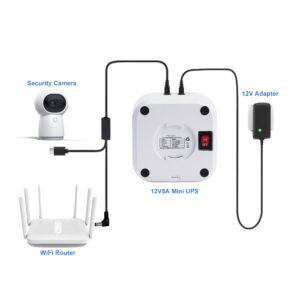In the rapidly evolving field of medical technology, power sources play a key role in ensuring that critical medical devices operate reliably and efficiently. Among various types of batteries, LiPo batteries (lithium polymer batteries) have received widespread attention due to their impressive energy density, lightweight design, and stability. These advantages have made LiPo batteries an essential component of a variety of medical applications, from portable medical devices to implantable medical devices such as pacemakers.
As healthcare continues to embrace innovation, the role of LiPo batteries in improving the portability, convenience, and reliability of medical devices has become increasingly important. In this article, we explore the importance of LiPo batteries in medical devices and how they can help improve device performance and patient care.

1.Advantages of Lithium Polymer Batteries in Medical Devices
Compact design and lightweight properties
One of the main advantages of lithium polymer batteries is their compact and lightweight design. Medical devices, especially portable devices, require batteries that are small in size and capable of providing high power. Lithium polymer batteries can effectively meet these requirements, making the devices lightweight and easy to operate without compromising performance. The need for lightweight, high-capacity batteries is critical in portable devices such as handheld diagnostic tools or wearable health monitors. Lithium polymer batteries can provide the necessary energy without adding too much weight, making them ideal for these applications.
High energy density
Compared to traditional chemical batteries such as nickel-cadmium or lead-acid, lithium polymer batteries have a higher energy density. This means that lithium polymer batteries can store more energy in a smaller space, making them ideal for powering devices that require a continuous and stable power supply. For medical devices, a reliable power supply is essential for precise monitoring, and high energy density ensures that the device can run longer without frequent charging. This feature is especially important for critical care equipment that may need to run continuously for hours or even days.
Safe and Reliable
While all batteries have inherent risks, lithium polymer batteries are designed with multiple safety features to minimize the dangers of overheating, short circuiting, or explosion. Safety is of paramount importance when it comes to medical devices. Lithium polymer batteries are often integrated with protection circuits to prevent overcharging, over-discharging, and short circuiting, thus ensuring the longevity and safe operation of medical devices. For example, pacemakers and other implantable devices rely on the stable performance of lithium polymer batteries to operate properly for long periods of time, sometimes even years.

2.Lithium Polymer Batteries in Portable Medical Devices
Portable medical devices have transformed healthcare by enabling remote monitoring and continuous care outside of traditional clinical settings. These devices rely on the performance and reliability of their power sources to ensure optimal functionality in different environments. Lithium polymer batteries have become an important part of this revolution due to their high efficiency and versatility.
Wearable Health Monitoring Devices
Wearable health monitoring devices, such as blood glucose monitors, heart rate monitors, and electrocardiogram devices, often use lithium polymer batteries to power sensors and communication systems. These devices need to be small, lightweight, and able to provide continuous monitoring for long periods of time. Lithium polymer batteries are ideal for these applications because they provide stable power in a small package, reducing the need for frequent charging and allowing patients to monitor their health discreetly and effectively.
Handheld Diagnostic Devices
Handheld medical diagnostic tools, such as portable ultrasound machines and pulse oximeters, are becoming increasingly common in hospitals and home care settings. These tools require compact, reliable power sources to ensure proper operation during examinations. Lithium polymer batteries are the perfect solution, providing the portability and power output required to run complex diagnostic systems while maintaining a small, manageable form factor.
Emergency Medical Devices
In emergency medical situations, it is critical to have portable equipment that can be deployed quickly. Lithium polymer batteries are used in equipment such as portable defibrillators and emergency ventilators, where reliable and fast power transmission is critical. These devices often need to operate in different conditions, from ambulances to remote areas, and lithium polymer batteries provide a stable and powerful energy source to ensure their performance.
3.Lithium Batteries in Implantable Medical Devices
Implantable medical devices, such as pacemakers, cochlear implants, and neurostimulators, are often powered by lithium polymer batteries. These devices are embedded in the patient’s body and require a long-lasting, stable energy supply to ensure their function throughout the patient’s lifetime.
Pacemakers
One of the most important applications of Lipo batteries is in pacemakers, which are small devices that regulate heart rhythm. Lithium polymer batteries are ideal for pacemakers due to their compact size and high energy density. Batteries used in pacemakers are designed to last for several years (typically 5 to 15 years), providing a stable power source to the device without frequent replacement. Since pacemakers require a continuous and reliable power source, the safety and long cycle life of lithium polymer batteries are critical to prevent device failure.
Cochlear Implants
Cochlear implants, which can help restore hearing to people with severe hearing loss, also rely on lithium polymer batteries for power. These implants require a constant energy source to process sound and transmit electrical signals to the auditory nerve. Due to the need for a compact power solution, lithium polymer batteries are the first choice. They provide high capacity in a small size, ensuring that the implant can operate for a long time without recharging.
Neurostimulators
Neurostimulators, devices used to treat chronic pain or conditions such as Parkinson’s disease, also benefit from the use of lithium polymer batteries. These devices are implanted in the body and require a steady source of power to deliver electrical impulses to specific nerves. The long life and reliability of lithium polymer batteries are critical to ensuring that the devices function effectively over the long term, reducing the need for surgical replacements.
4.The Future of Li-Polymer Batteries in Medical Devices
As technology continues to advance, the role of Li-Po batteries in medical devices is likely to expand further. Innovations in battery chemistry and design will lead to more efficient and durable batteries, further improving the performance of medical devices. As the demand for remote health monitoring, telemedicine, and advanced implantable devices continues to grow, Li-Po batteries will play an even more important role in making healthcare more convenient, efficient, and reliable.
Longer Life and Faster Charging
As research into Li-Po battery technology advances, these batteries are expected to have longer life and faster charging. This will benefit implantable medical devices (which do not need to be replaced as frequently) and portable devices (which can be charged in a shorter time), thereby improving convenience for patients and healthcare providers.
Improved Safety Features
The safety features of Li-Po batteries continue to improve, reducing the risk of battery failure or accidents. For medical devices where failure is not an option, these safety advances will further solidify Li-Po batteries as the preferred power solution for critical medical applications.

Conclusion: Lithium Polymer Batteries – An Essential Part of Modern Medical Devices
Lithium polymer batteries have become an indispensable component of portable and implantable medical devices due to their compact size, high energy density and reliable performance. Whether powering wearable health devices, portable diagnostic tools or life-saving implants such as pacemakers, lithium polymer batteries enable these devices to operate efficiently and safely.
As the medical industry continues to innovate and demand more portable, reliable and efficient technologies, lithium polymer batteries will remain at the forefront, ensuring that patients have access to the most advanced, reliable and life-changing medical devices.





